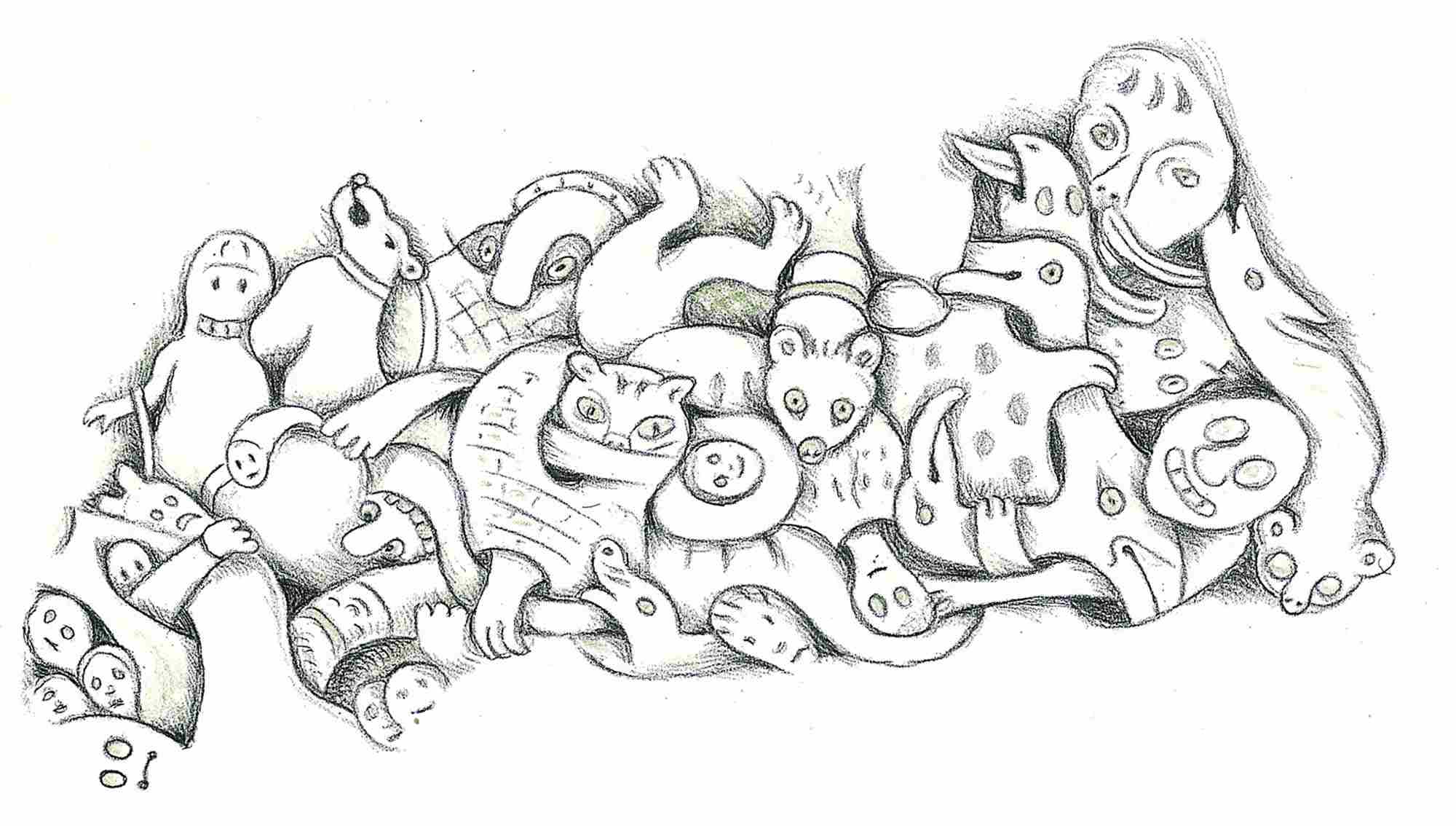

YGGDRASIL, the world tree, trembled and its evergreen leaves began to wilt. Odin was deeply worried. Once again he, the father of gods and men, had broken his sacred word. He had allowed the Aesir to lay hands on Loki; for even though Loki was evil, he was his foster brother, and they had sworn eternal kinship. The world of the Aesir was built on honor, and with honor gone, the Aesir were no longer high and holy. Their world was falling apart.
In deep gloom Odin went to the grave of the wise woman, the volva, and to the head of Mimir, and asked for advice. But all he could hear was: “Ax time, sword time, ere the world fall; wind time, wolf time! Do you know more now or not?”
Then Odin knew that Ragnarokk, the day of reckoning when the destiny of the gods would be decided, was fast approaching. Soon the Aesir must face the forces of destruction and win over them, or be themselves destroyed.
There was no more kindness among gods or men since gentle Balder had passed over to the gloomy realm of Hel. Brother could no longer trust brother. In their lust for gold men stole from each other and killed each other, and bloody wars raged all over the earth. Odin and his Valkyries rushed from battlefield to battlefield to gather as many heroes as they could to fight in the last battle. Even the vast hall of Valhalla was getting crowded.
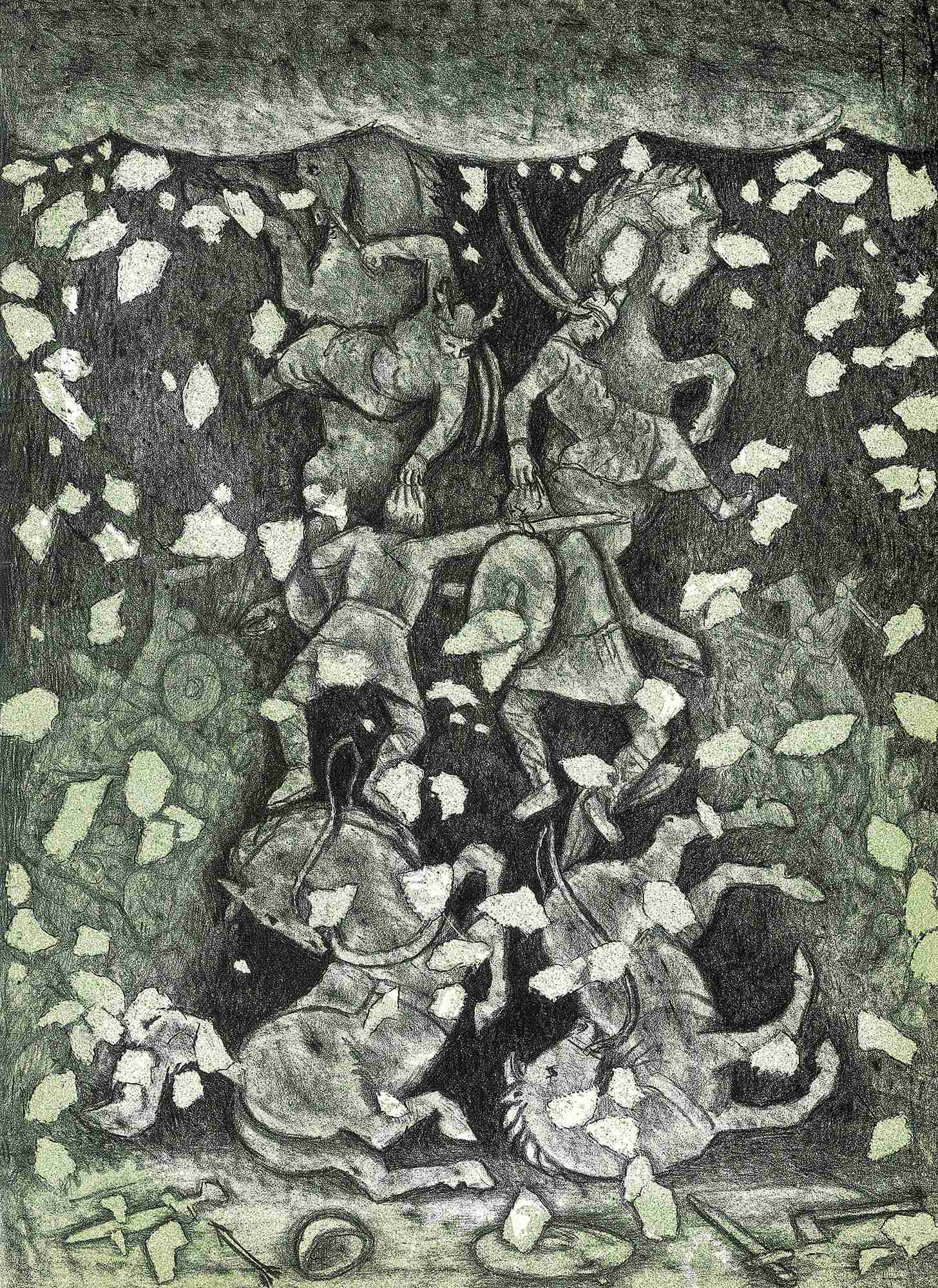
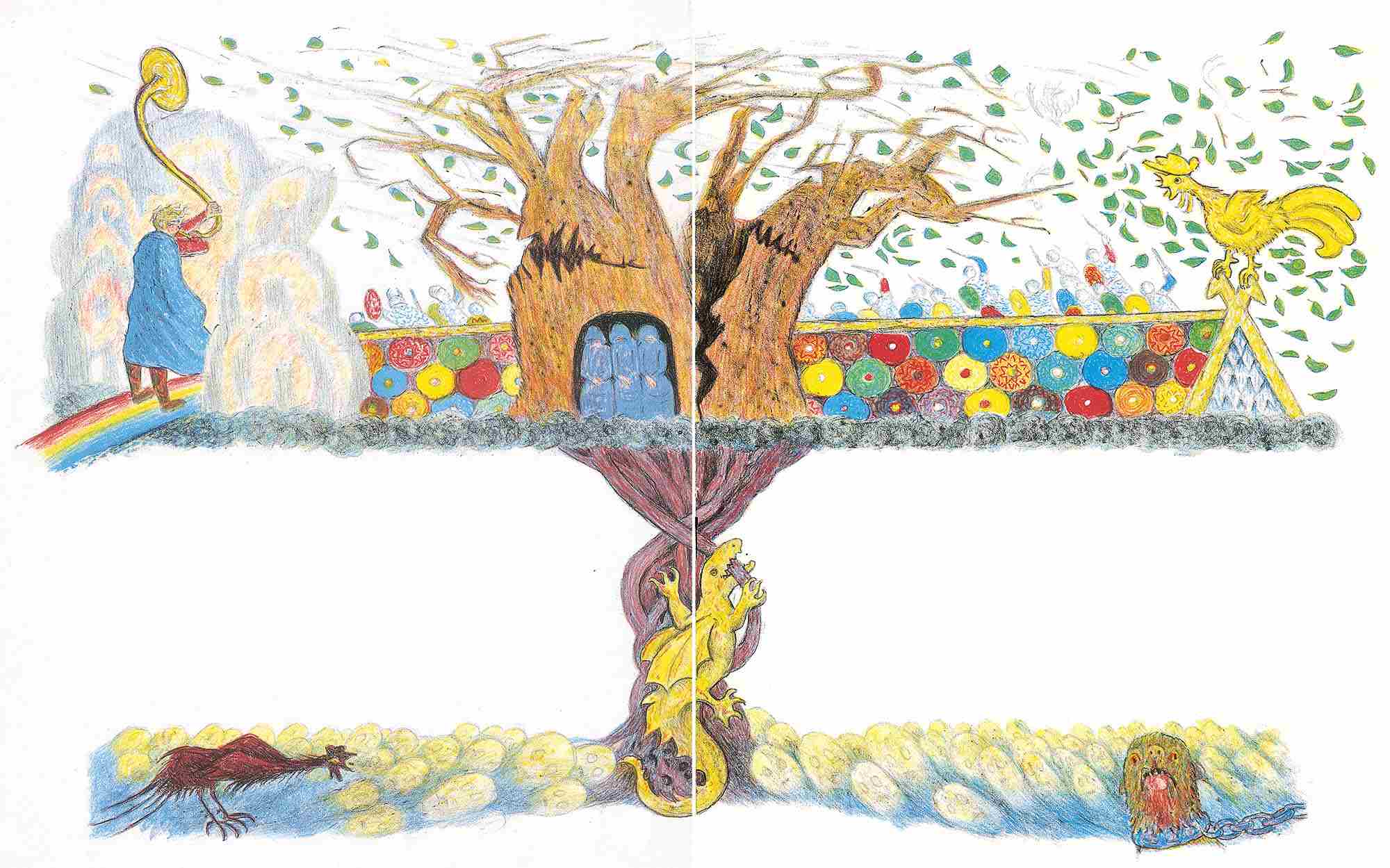
Thor was as busy as his father, forever on the go, fighting jotuns and trolls. For the monsters were getting bolder, drawing ever closer, pelting the world with snow and ice. Their frosty breath spread an icy fog over the earth, shutting out the warm rays of the sun.
And a winter came that lasted for three years. Deep snow covered the ground; nothing could sprout, nothing could grow. Men no longer fought for gold, but for food, and Hel’s hall was filled to bursting with all those who had died of starvation.
Then, early one morning, long before daybreak, the golden cock of Asgard stretched out his neck and crowed loudly. An answer came echoing up through the ground from the soot-black cock that perched on the roof of Hel’s hall. The day of Ragnarokk had come
The earth split open, all the way to the world of the dead, and all the bonds of the world broke with a twang. Garm, the hound of Hel, leapt free from his leash, Fenris the wolf shook off his magic fetter, and Loki rose free from his ledge. No longer was anyone bound by anything.
In deepest Niflheim, the dragon Nidhogg gnawed and gnawed at the root of the world tree. Yggdrasil trembled and groaned and lost all its leaves. “Woe,” cried the Norns at the foot of the tree. They covered their faces and stopped spinning the threads of life.
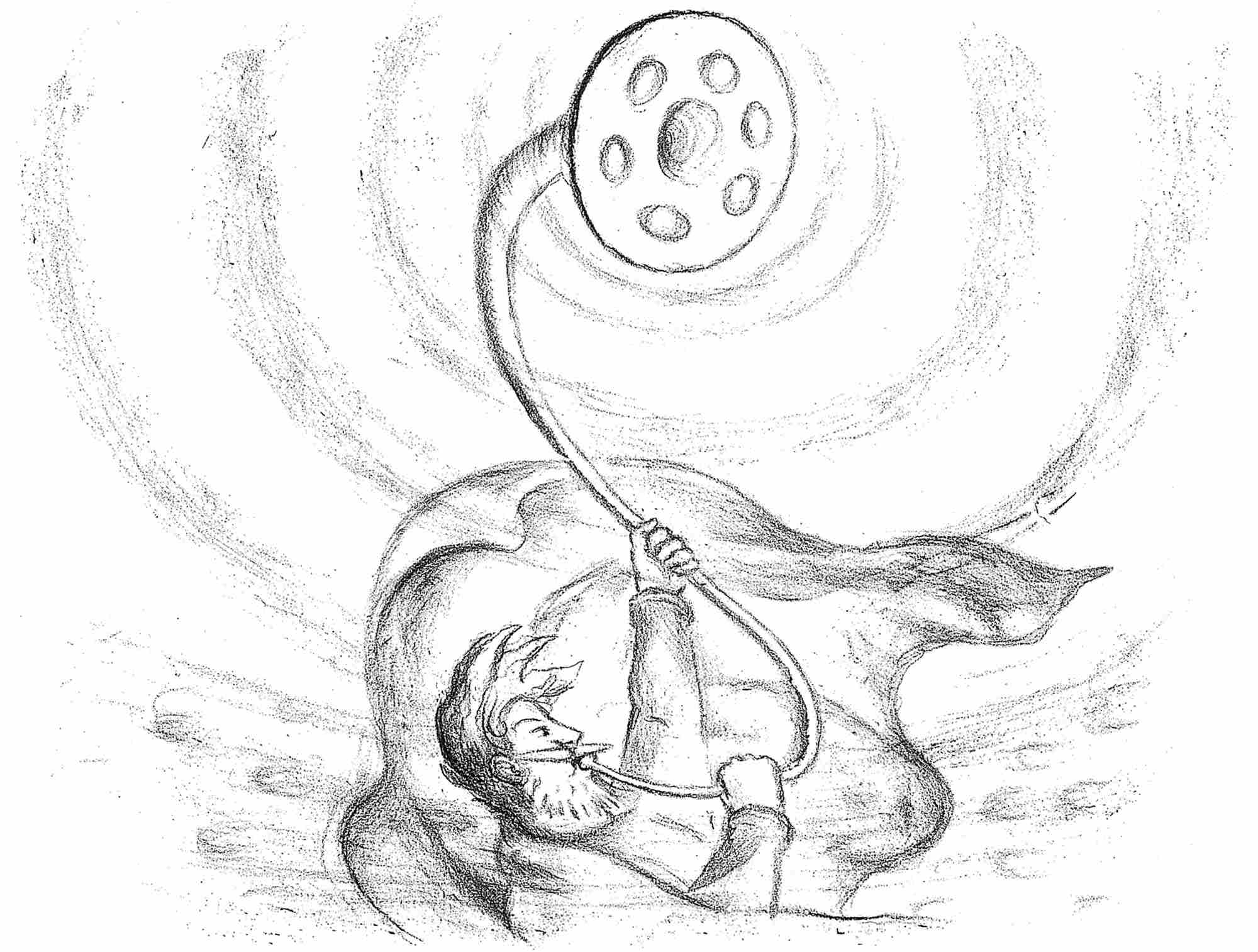
From his watch on top of the rainbow Heimdall now saw enemies coming from all directions. He lifted high his horn and blew with all his might. The blasts of the Gjallarhorn shrilled through all worlds, and the Aesir leapt to their feet and donned their battle gear. Valhalla’s many doors sprang open and out rushed Odin’s vast army of heroes. loud battle cries they fell into formation behind Odin.
The huge army of gods and heroes marched through the gates of Asgard. First came Odin on his eight-legged steed, his single eye gleaming like the sun. At his side strode Thor with enormous steps. He swung his hammer and gnashed his teeth as his eyes fell on the welter of jotuns and many-headed trolls rolling down from the east.
From the frothing sea the Midgard’s Serpent slithered up on land. There he was met by his brother Fenris. By now the wolf was so enormous that his gaping jaws touched the earth and the vault of the sky; and had there been room his jaws would have gaped wider still. Side by side the two dreadful monsters pushed forward.
Out of the north came a ghoulish ship, the Nagelfar. Its sides were covered with clippings of finger- and toenails, and it was manned by a crew of ghosts. Standing at the rudder and sailing the ship straight through the raging sea was Loki, coming back for revenge.
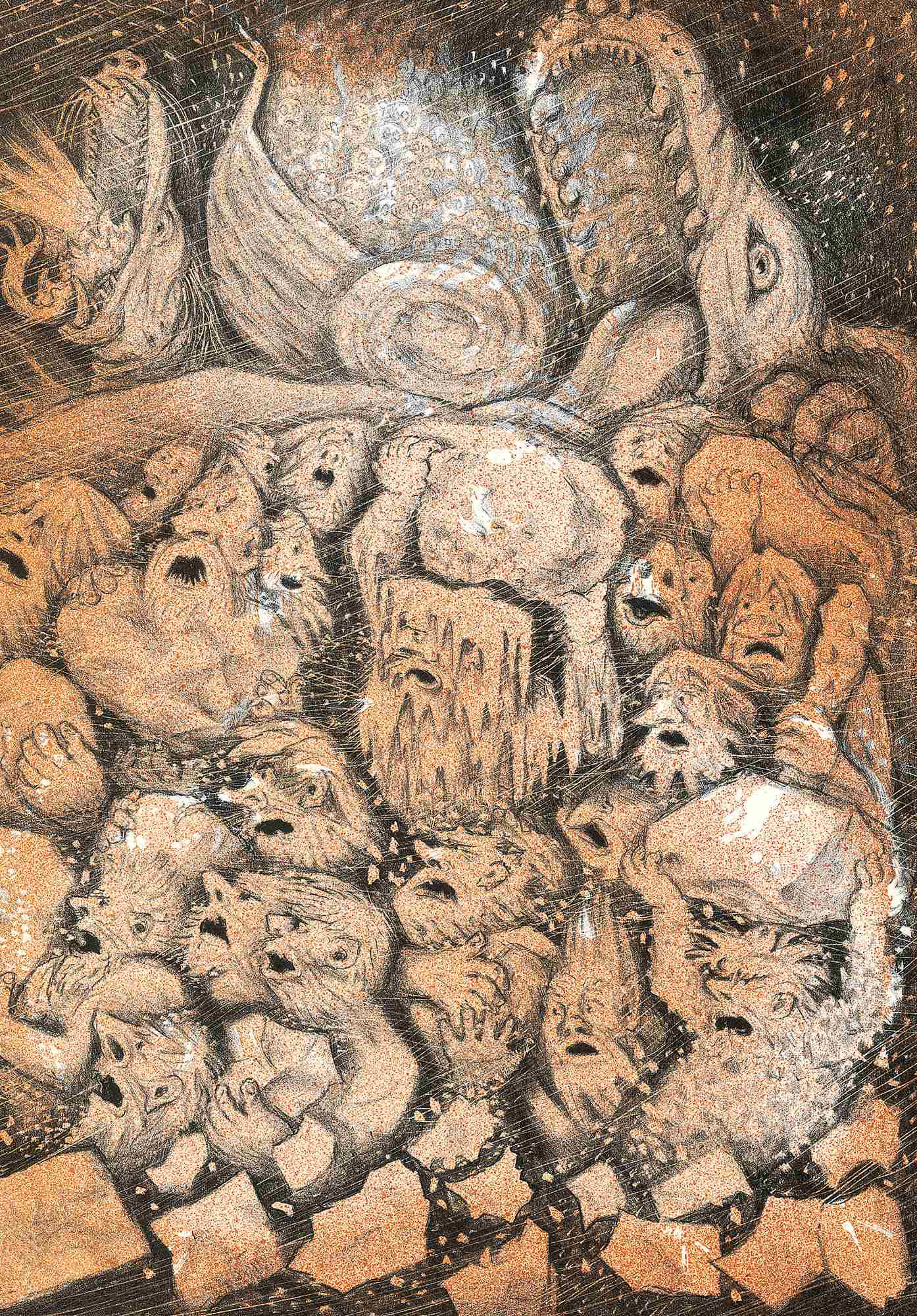

The din of the monsters was so loud that the vault of the sky split open. Through the crack burst Surt, ruler of Muspelheim, the world of fire. He swung his flaming sword, and it set fire to everything it touched as he rushed toward the rainbow bridge. Behind him surged his warriors, horde upon horde of fire demons, all set upon conquering Asgard. But when they stormed the shimmering bridge it broke and fell.
Surt and his warriors then made for the wide field of Vigrid, the greatest field in the world. One hundred miles long and one hundred miles wide, it was a proper battlefield for gods and giants. There the fire demons were joined by the hordes of trolls and jotuns, ghosts and monsters. In row upon row, they waited for the Aesir to come and give battle.
Led by Odin, the huge army of gods and heroes thundered up the field. Odin made straight for the gaping jaws of Fenris. But before he could throw his spear down the wolfs horrible gullet, the monster lurched forward and swallowed him.
Thor could not come to his father’s aid; he had his hands full fighting the Midgard’s Serpent. Time and again he threw his hammer at the hissing head, until at last the serpent gave up its breath and died. Thor lived only long enough to stagger nine steps backward. Then he fell to the ground, killed by the serpent’s poisonous breath.
Odin’s son Vidar avenged his father. He had an enormous boot made from the remnants of shoe leather that good men on earth had saved. When he leapt forward and thrust his foot into the mouth of the wolf, he tore the powerful jaws apart and split the monster’s head.
The archenemies, Loki and Heimdall, fell, pierced by each other’s weapons. Tyr and Garm, the hound of Hel, also killed each other.
Frey fell an easy prey when the demon Surt thrust his flaming sword through him. Frey’s only weapon was a pair of antlers, for he had given away his golden sword to win the love of Gerd.
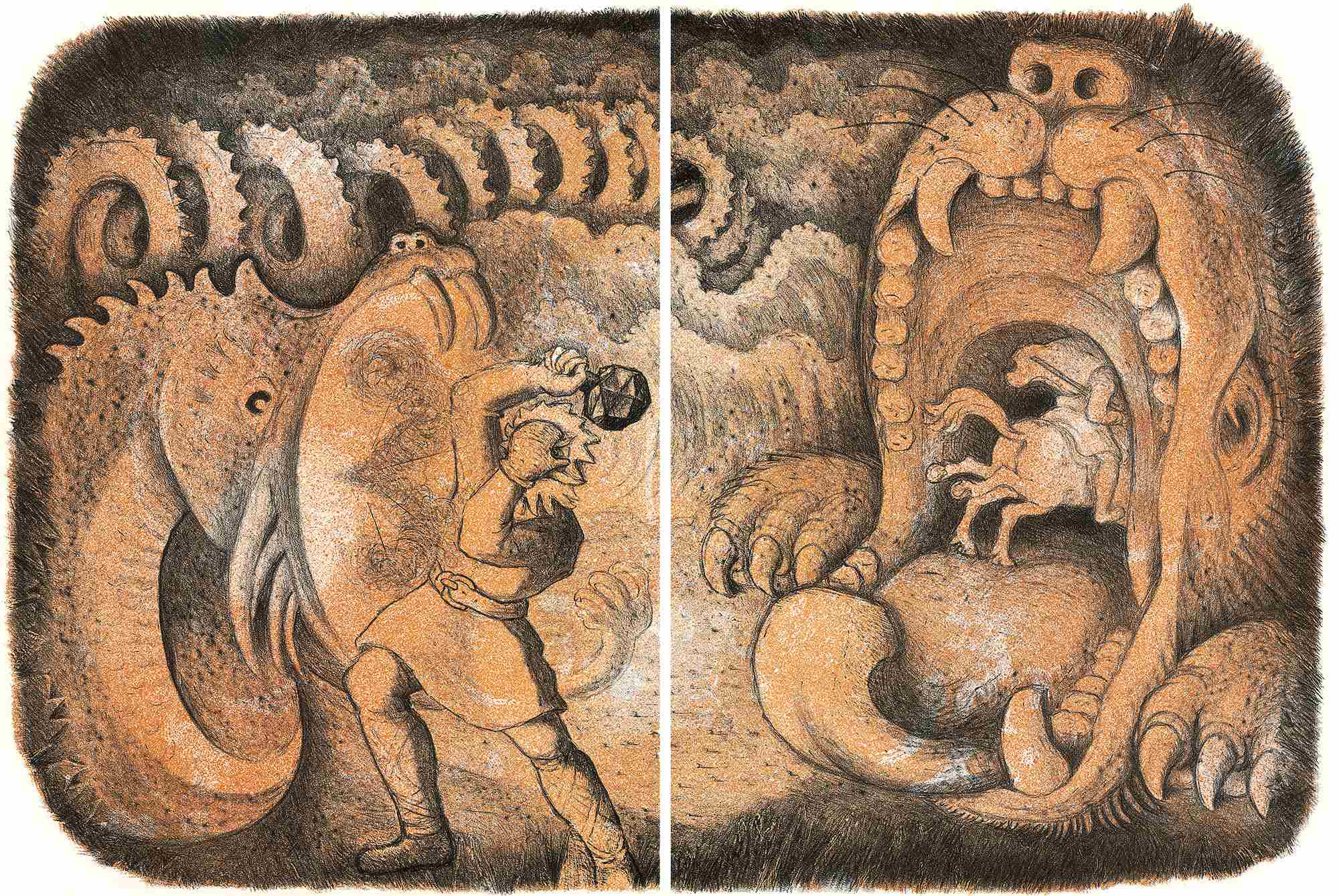
Odin’s vast army of heroes fought as long as there was a man standing, though jotuns and trolls pelted them with blocks of ice, with boulders, yes, even with mountains.
At last the battle ended. Most of the Aesir and all of Odin’s warriors lay dead, and the sound of the goddesses weeping filled the world.
Then the two jotuns in wolfs clothing caught up with sun and moon and swallowed them.
The Aesir world was plunged into darkness, and Yggdrasil, the world tree, broke and fell. Surt lifted his flaming sword and flung fire over everything. The sea rose above the mountains and fell crashing over the land. The air trembled, the stars were ripped from the sky as burning earth disappeared under the waves, and the sacred halls of Asgard toppled and fell.
Out of the depths rose Nidhogg, the dragon of destruction. For a while it hovered over the fallen world, then sank back into the void.
All that was left of the world of the Aesir was the field of Ida, where their glittering halls had stood. There the Aesir who had not been destroyed gathered again.
When the earth split open, Balder, the gentle, came up from Hel, leading his blind brother, Hod. They were joined by Magni and Modi, Thor’s young sons, and by Odin’s sons Vidar and Vali, youngest of the Aesir. And Hoenir, Odin’s brother, came back from the faraway world of the Vanir to stand by his kinsmen.
Quietly, the last of the Aesir walked over the field of Ida, looking at the ruins of their once glittering halls and talking about the great deeds of their fathers. There, on the greensward, they found the golden chessmen with which they had played in the old days of power and glory. Now they had no one to lead, no one to guard; they had nothing to do but play chess and think back. So they sat down in the gray twilight and played peaceful games with their golden chessmen.
